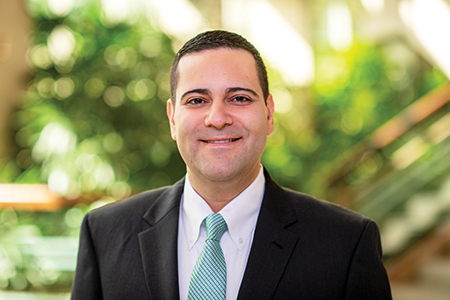Building A Legacy With Complex Assets
By Mark Froehlich
 Whether you are a senior executive preparing for retirement, a partner at an emerging biotech company that was acquired, an early founder of a company that has since expanded, or an employee who receives stock options as part of your compensation, you may have illiquid or nonpublicly traded assets in your portfolio as a direct result of the nature of the life sciences industry. Deciding how to manage your overall portfolio, including illiquid or complex assets, is an important step in preserving both your financial and philanthropic legacies.
Whether you are a senior executive preparing for retirement, a partner at an emerging biotech company that was acquired, an early founder of a company that has since expanded, or an employee who receives stock options as part of your compensation, you may have illiquid or nonpublicly traded assets in your portfolio as a direct result of the nature of the life sciences industry. Deciding how to manage your overall portfolio, including illiquid or complex assets, is an important step in preserving both your financial and philanthropic legacies.
As an alternative to selling a business holding, you might consider contributing the asset to a donor-advised fund (DAF). A DAF is a charitable giving account designed exclusively to invest, grow, and give a variety of assets to charities for meaningful and lasting impact. Uniquely, DAFs allow for the support of many charities through a single tax-deductible donation. For example, stock options can be contributed to a DAF. At that point, the donor may claim a tax deduction. Once the options are liquidated, the proceeds are invested for potential growth and may be used to support several different causes. In this way, DAFs help to reduce the administrative burden associated with philanthropy. Further, the seamless nature of donating, combined with potential investment returns, maximizes the amount of dollars that can directly go to the charity of choice — ultimately amplifying philanthropic impact.
SIMPLIFY COMPLEX SITUATIONS
When planning your financial and philanthropic future, leveraging illiquid assets gained through working in the life sciences industry for philanthropic efforts may be the most impactful solution – both for the donor and the eventual recipient of the funds. Valuable illiquid assets, especially those with a low taxable cost basis, can go a long way in supporting the needs of a charity. However, liquidating these assets can prove to be a cumbersome process for most nonprofits. DAF sponsors are fully capable of working with many different assets — from artwork to stock to property — to liquidate for the benefit of charity.
Donating illiquid assets is also beneficial to the financial health of donors. Once assets are given to the DAF, the donor may receive a charitable deduction for fair-market value of the contribution. If the donor is contributing highly appreciated assets, capital gains taxes are often avoided by both the donor and the DAF sponsor.
DAF sponsors can accept a wide array of unique assets, including IP, founder’s shares, and stock options. Once the assets are contributed to a DAF and ultimately liquidated by the DAF sponsor, the donor can recommend a grant from the DAF at any time to any 501(c)(3) organization in good standing.
BUILD YOUR LEGACY
Partner with a professional advisor who can help you find a low-cost and high-value DAF sponsor who can mitigate risk associated with illiquid assets and help you liquidate assets as soon as possible while avoiding risk to ensure that the funds are available for granting as soon as possible.
Building your philanthropic legacy is important. It’s a manifestation of your values and the hard work you have put in to create a better world, and leveraging your entire portfolio is a smart way to make an indelible impact.
MARK FROEHLICH has served as Vanguard Charitable CFO since January 2019. Mark is a CPA and holds an MBA from Temple University’s Fox School of Business.
